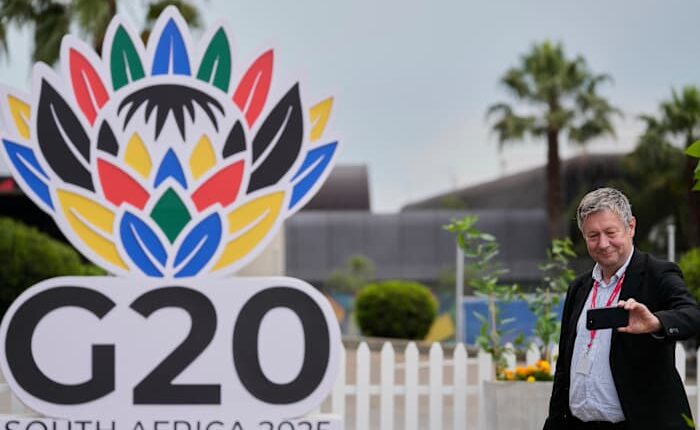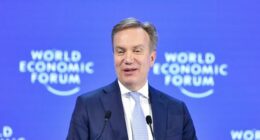Share this @internewscast.com

JOHANNESBURG – Africa is set to host its inaugural Group of 20 summit on Saturday, aiming to address enduring challenges plaguing the world’s poorest countries with a robust and forward-thinking agenda.
In a historic gathering, leaders and officials from the wealthiest nations and key emerging economies will convene near Soweto, South Africa, a township renowned for its historical significance and connection to Nelson Mandela. This summit seeks to build consensus around priorities outlined by the host nation.
The agenda focuses on enhancing support for impoverished countries in their recovery from climate-induced disasters, alleviating foreign debt, transitioning to sustainable energy, and optimizing the use of their mineral resources. These efforts aim to bridge the growing divide in global inequality.
United Nations Secretary-General António Guterres expressed cautious optimism about the potential for the G20 to prioritize developing nations and implement meaningful changes. “We’ll see,” Guterres remarked, acknowledging South Africa’s efforts to highlight these critical issues.
This two-day event proceeds without the participation of the United States, following President Donald Trump’s directive for a U.S. boycott. Trump cited accusations of South Africa implementing discriminatory policies against its white Afrikaner minority as the reason for this decision.
Despite the prolonged diplomatic tensions between the U.S. and South Africa, which intensified in the lead-up to the summit, some leaders are determined to advance the discussions and focus on the summit’s objectives, rather than dwell on the absence of the U.S.
“I do regret it,” French President Emmanuel Macron said of Trump’s absence, “but it should not block us. Our duty is to be present, engage and work all together because we have so many challenges.”
The G20 is actually a group of 21 members that includes 19 nations, the European Union and the African Union.
The bloc was formed in 1999 as a bridge between rich and poor nations to confront global financial crises. While it often operates in the shadow of the Group of Seven richest democracies, G20 members together represent around 85% of the world’s economy, 75% of international trade and more than half the global population.
But it works on consensus rather than any binding resolutions, and that is often hard to come by with the different interests of members like the U.S., Russia, China, India, Japan, the Western European nations France, Germany and the U.K., and others like Indonesia, Saudi Arabia and South Africa.
Guterres cautioned that rich nations have often failed to make the concessions required to strike effective climate or global financial reform agreements.
G20 summits traditionally end with a leaders’ declaration — which details any broad agreement reached by the members — but even that was proving hard to come by in Johannesburg.
South Africa said the U.S. was exerting pressure on it not to issue any leaders’ declaration in the absence of the U.S. and instead tone down the final document to a unilateral statement from the host country.
South African President Cyril Ramaphosa responded to that by saying “we will not be bullied” and has promised a declaration from all members present at the close of the summit on Sunday.
Even so, the direction of the G20 bloc is likely to change sharply given the U.S. takes over the rotating presidency from South Africa at the end of this summit and the Trump administration has derided the focus on climate change and inequality.
The only role the U.S. will play at this summit, the White House said, will be when a representative from the United States Embassy in South Africa attends the formal handover ceremony at the end to accept the G20 presidency.
South Africa said it’s an insult for Ramaphosa to hand over to what it considers to be a junior diplomatic official.
___
Copyright 2025 The Associated Press. All rights reserved. This material may not be published, broadcast, rewritten or redistributed without permission.












